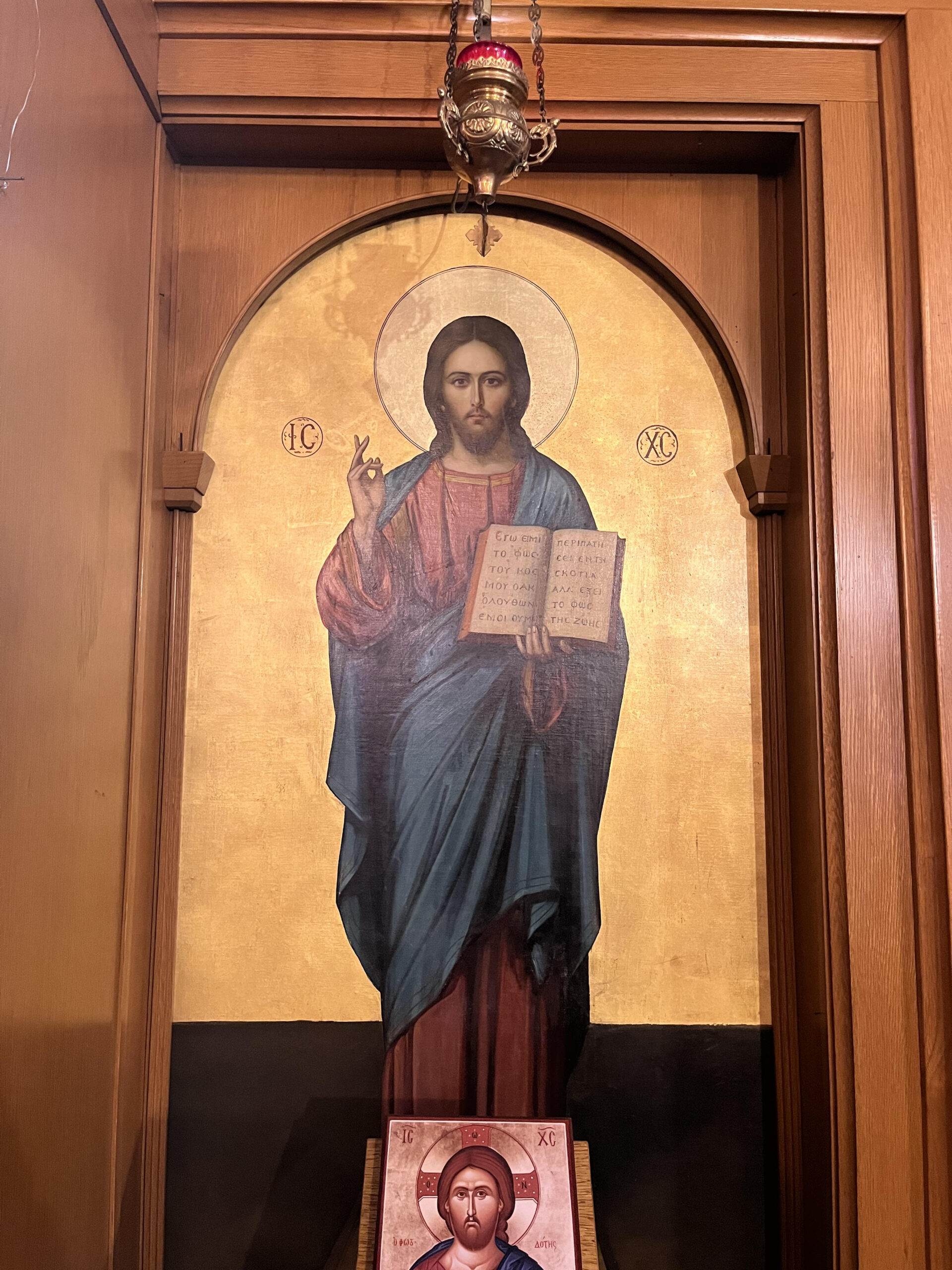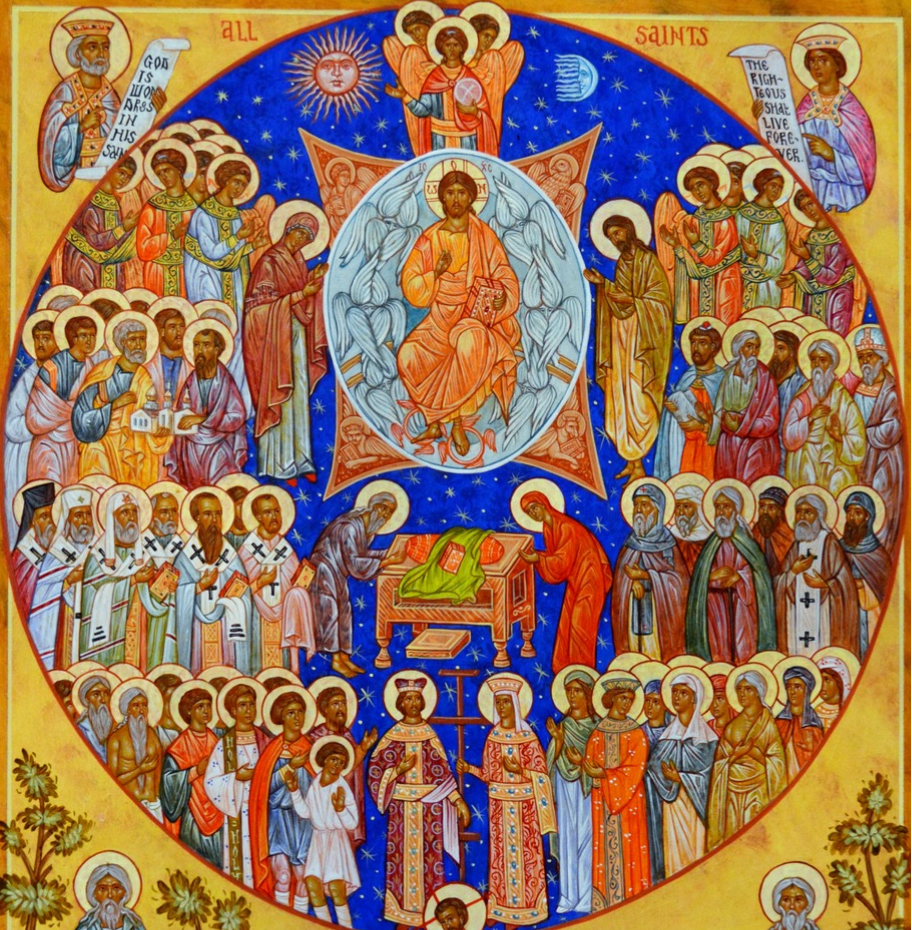At that time, a lawyer asked Him a question, to test Him. “Teacher, which is the great commandment in the law?” And He said to him, “You shall love the Lord your God with all your heart, and with all your soul, and with all your mind. This is the great and first commandment. And a second is like it, You shall love your neighbor as yourself. On these two commandments depend all the law and the prophets.” Now while the Pharisees were gathered together, Jesus asked them a question, saying, “What do you think of Christ? Whose son is he?” They said to Him, “The son of David.” He said to them, “How is it then that David, inspired by the Spirit, calls him Lord, saying, ‘The Lord said to my Lord, Sit at my right hand, till I put your enemies under your feet’? If David thus calls him Lord, how is he his son?” And no one was able to answer Him a word, nor from that day did anyone dare to ask Him any more questions.
Matthew 22:35-46 (Gospel of the 15th Sunday of Matthew)
The purpose of law is to ensure freedom and order. Without law, there would be chaos. Before the Fall of mankind, God gave Adam and Eve one rule to obey, in order to live in the state of Paradise in which they were living. And that rule was not to eat of one tree. God put this rule in place in order to give Adam and Eve freedom. God didn’t compel them to live in a Paradisal state with Him. He offered that at a gift which they could freely choose to accept or not. In the Garden of Eden, before the Fall, Adam and Eve lived in a state of perfection/bliss/paradise with God and with one another. In other words, they had perfect love for God and for each other. The Fall destroyed that perfection. It severed the bond between God and mankind, because having sinned once, mankind continued to sin and sin and sin, against God and against one another.
In order to bring some order to the chaos, God, through Moses, gave what is known as the Law. Sometimes it is called “The Mosaic Law” because it was given to Moses, or as the Old Testament Law. Most of us are familiar with the Ten Commandments—these are the foundation of the Law. There are also 603 other commandments in the Old Testament, found in the books of Exodus, Leviticus, Numbers and Deuteronomy. Part of the Law was that worship was done in the temple, and there were ritual sacrifices that were a part of worship and of life. Levites, people who descended from the tribe of Levi, were the ones who were the priests of the temple. Pharisees and Sadducees were people who governed the temple and enforced Jewish Law. There were expectations for the people to follow the Law, and penalties if they did not. Of course, the overwhelming majority of the people couldn’t read, and so it was left to the temple elite to interpret and enforce the Law, which oftentimes was done to the detriment of the people living under the Law, who were taken advantage of and abused by those charged to enforce it. Other governing bodies also were established, like the Sanhedrin. This is the society in which Jesus lived during His earthly ministry.
Jesus went to the temple to worship. He followed the Law. He also garnered lots of followers, who contrasted Jesus’ love for people with the abuse they so often found at the temple. As people flocked to Jesus, the temple elites began to fear losing a grip on their stranglehold of religious power and authority.
In Matthew 22:35-46, we read about an encounter between Jesus and a lawyer, sent to test Him. He asked Jesus “Which is the great commandment in the Law?” (Matthew 22:36) Jesus answered that there were two great commandments—to “love the Lord your God with all your heart, and with all your soul, and with all your mind.” And to “love your neighbor as yourself.” (22:37-39) And then He said something revolutionary—“on THESE two commandments depend all the law and the prophets.” (22:40) Anything that God had said to Moses could be summarized into one of these two categories—love God and love neighbor. We can even categorize the Ten Commandments according to these two categories.
Love God—no other gods before me; no graven images; do not take the Lord’s name in vain; remember the Sabbath.
Love neighbor—honor father and mother; don’t murder; don’t steal; don’t commit adultery; do not bear false witness; do not covet.
Thus, instead of trying to get a handle on 613, or even 10 commandments, we need to focus on only two, because doing these two took care of the rest. That doesn’t mean that Jesus said abolish the Law entirely, but that these two things are foundational for everything in the Law. Similarly, we have lots of Traditions and practices in our church—we don’t throw them out. We still celebrate the Liturgy as an expression of love for God and prayer for one another. Everything done in the church should emanate from one commandment or the other, or both.
In making decisions, we teach our children to make them by two metrics—is it smart? Is it safe? As Christians, we should be making our decisions based on these two great commandments—does it show love for God? Does it show love for neighbor? And both metrics need to be met. I can “love” my neighbor while doing something immoral with my neighbor. Real love, however, puts God in the mix with loving neighbor, so that every gesture we do is a gesture of love towards both God and neighbor. Sin, very simply defined, is the absence of love, or the failure to love. We can’t love and sin at the same time. This is why the two great commandments are not trivial, but are foundational. As Saint Paul writes in I Corinthians 16:14, Let all that you do be done in love.
The other thing that following these Two Commandments leads to is a foretaste of the Paradisal state mankind enjoyed before the Fall—where there was perfect love for God and for everyone else. Following these two commandments is a rehearsal for eternal life. They say that you play in the same way that you practice. If we hope to inherit the Kingdom of God, then we must learn to love God and love our neighbor. While we have many things to learn—Bible verses, Traditions, theology—the foundation of all of these things is love. Again, as Saint Paul writes in I Corinthians 13:2, And if I have prophetic powers, and understand all mysteries and all knowledge, and if I have all faith, so as to remove mountains, but have not love, I am nothing.
Our entrance into the Kingdom of heaven will be based on God’s judgment on whether we loved Him, and loved one another. We are reminded of these things constantly in our Orthodox life. The cross has two bars—the vertical bar goes from earth to heaven and is a reminder to love God. The horizontal bar extends in each direction, reminding us to love our neighbor. Imagine making the sign of the cross and saying to yourself each time “love God, love neighbor,” and saying that before a meeting, or an athletic context, or just to begin your day. The most prominent prayer, the Lord’s Prayer, covers these two commandments in the first two words—Our Father. The “Father” is a reminder to love God, and “Our” is a reminder to love our neighbor, that we are in this together, that it is OUR Father and not MY Father.
An Angel before Your conception, O Lord, conveyed the salutation Rejoice to the Maiden full of grace. And an Angel at Your Resurrection rolled away the stone of Your glorious sepulcher. The one, instead of sorrow, was disclosing tokens of gladness. The other, instead of death, proclaimed to us the Master and Giver of life. Therefore we cry aloud unto You the Benefactor of all: O Lord, glory to You. (Fourth Resurrectional Praise, 2nd Tone, Trans. by Fr. Seraphim Dedes)
Love God. Love neighbor. The Christian life is summarized in these two commandments.

